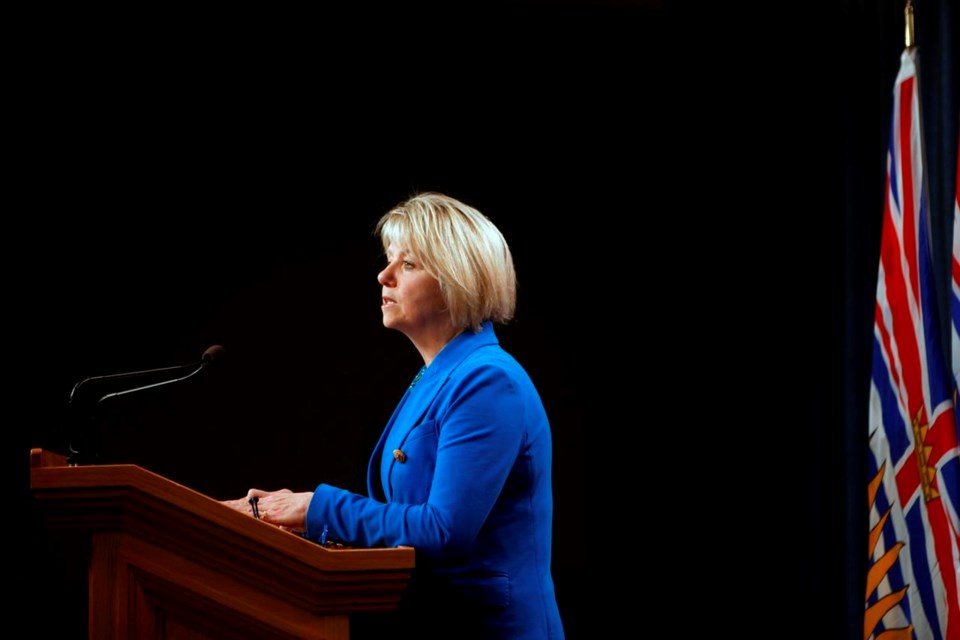VICTORIA — British Columbia's top doctor says she is not in favour of instituting fines for people who don't follow the rules for wearing masks or maintaining physical distancing.
Dr. Bonnie Henry said they know that certain sections of the population are disproportionately targeted when fines are handed out, including those with disabilities, the homeless and racialized communities.
People need to follow common-sense rules just as they adhere to fire codes and sanitation requirements, she said at a news conference Monday.
"You wouldn't ask a business owner to operate outside of the posted business hours, nor should you expect them to bend the COVID-19 rules for you," she said.
Masks are mandatory in indoor public spaces in Regina, Saskatoon and Prince Albert, while in Quebec a face covering is required in enclosed public places for those over the age of 10.
Not all provinces have a provincial-level mask mandate and in most cases the onus is on businesses, Henry said.
"What I'm saying is, as a community, we need to recognize that those are rules that keep workers safe and keep us safe when we're in those businesses, or those restaurants."
Henry said it is up to businesses to follow their COVID-19 safety plan and hand out masks if customers don't have one.
She believes a mask mandate will not make a difference for transmission because the virus is spreading in private homes and parties, Henry said.
"Settings where people would not naturally wear a mask."
B.C. added almost 2,000 more cases of COVID-19 to the list of infections over the last three days, bringing the total to 22,994, and nine deaths.
Even as news of another promising COVID-19 vaccine candidate stirred hope, Canada's case count surpassed the 300,000 mark, with Quebec and Ontario continuing to report more than 1,000 daily new infections and a sudden spike in Nunavut triggering a two-week lockdown.
Henry said health officials are planning for a vaccine in the new year once there is a protocol and a licence for use in Canada.
The distribution is "logistically challenging" because the Pfizer vaccine is "a bit fussy" in terms of requiring ultra-low temperatures and how the dose is given, she said. That means that certain vaccinators will have to deliver that vaccine, she added.
The Moderna vaccine also requires low temperatures but is a bit easier, Henry said.
"So, it's all trying to be organized while we still are trying to answer some of the really key questions," she said. "But that is something that we are spending quite a bit of time working on."
— By Hina Alam in Vancouver.
This report by The Canadian Press was first published Nov. 16, 2020.
The Canadian Press



